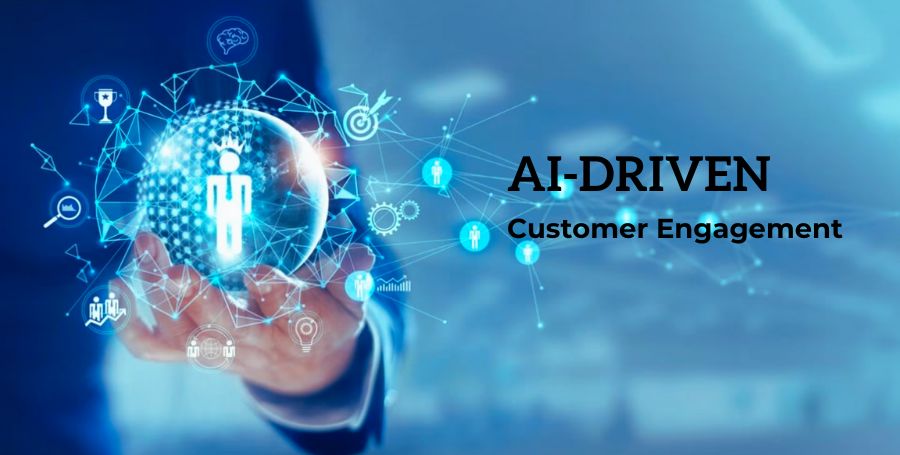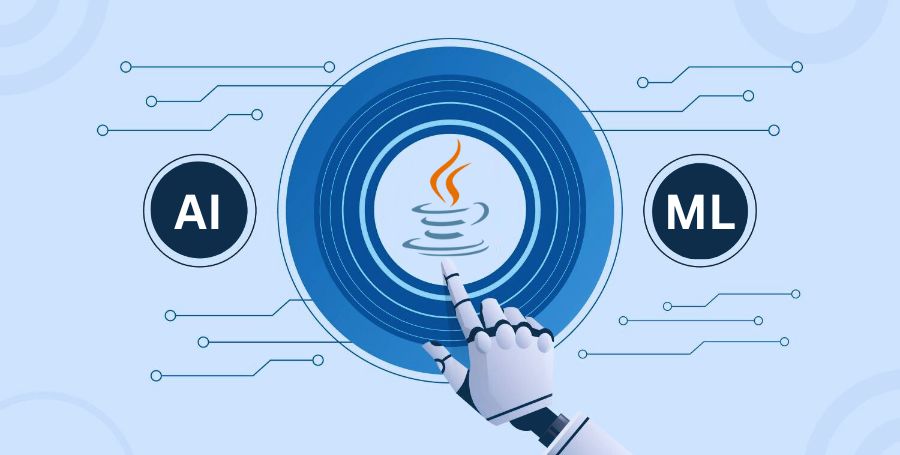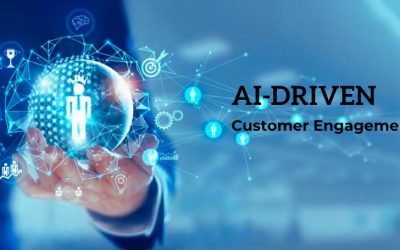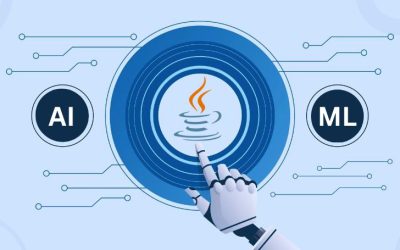Artificial intelligence technologies are rapidly permeating all realms of modern enterprises. From advertising and marketing to manufacturing, logistics, customer service, and beyond, intelligent systems automate manual tasks, generate novel insights, and transform traditional business models.
However, critical ethical quandaries that warrant prudent consideration are raised as organizations increasingly leverage AI’s capabilities on internal processes and public services. With data-driven algorithms assuming agency over critical decisions, the potential for unintended harms, unfair outcomes, or lack of transparency becomes a valid concern.
While AI promises unprecedented productivity and convenience, its widespread assimilation also gives us a collective responsibility to ensure such innovations respect core human values of fairness, dignity, privacy, and well-being. This article will discuss some of the key ethical considerations around enterprise use of AI and highlight approaches to balancing innovation with responsibility.
What are the Ethical Considerations with Enterprise AI?
A few main ethical issues arise with the widespread adoption of AI within businesses. One consideration is bias and unfairness in algorithmic decision-making. When AI systems are trained on datasets that reflect human prejudices, they can discriminate against certain groups.
For example, an AI recruiting tool may be less likely to call candidates with distinctively black-sounding names for interviews. Another issue is the need for more transparency in complex AI models. Users often need help understanding why specific predictions or recommendations are made.
This can undermine systems’ ability, accountability, and trust for important decisions. Additionally, as AI substitutes human jobs, there are questions about re-skilling workers, job losses, and fair compensation. With great power comes great responsibility, and businesses must address these ethical dimensions of AI thoughtfully.
The Main Ethical Considerations in Enterprise AI
The primary ethical considerations in enterprise AI are explained below:
Handling Job Transformations Responsibly
AI’s capabilities will result in the creation of numerous new roles, despite the automation of some jobs. However, managing workforce changes smoothly requires planning and empathy. Companies should communicate openly about how roles may evolve rather than waiting till disruptions happen.
Provide training and reskilling opportunities for employees to transition into new AI-enabled jobs as existing tasks become automated. Offer internal job posting programs and outplacement support for those unable to adapt. Consider wage insurance or transitional financial support for affected workers as well.
With a ranked workforce, AI should augment human capabilities rather than lead to large-scale unemployment, which could negatively impact businesses and economies. Cooperation between companies, governments, and educators on “AI for Jobs” policies is vital.
Data Privacy and Security
Since AI systems rely on data to learn and improve over time, protecting the privacy and security of information used to train, develop, and deploy models is critical from an ethical standpoint.
Strong privacy laws like GDPR in the EU underline the importance of obtaining explicit and informed consent for data usage. Companies must implement robust processes to anonymize or aggregate personal details while making data sets realistic and useful for developing generally applicable AI systems.
Strict access controls, monitoring, and response plans help minimize the risks of data breaches. AI techniques like federated learning and homomorphic encryption also aim to enable model updates without accessing raw private information. Overall, businesses must promise and earn the trust of customers and workers on responsible data practices.
Transparency and Informed Choice
When enterprises use people’s data to develop AI systems, it is essential that individuals clearly understand how their information is being used and have a choice to opt out. Companies should provide easily accessible privacy policies and consent mechanisms. Where personal data powers automated decisions, individuals have a right to an explanation of the logic involved. Transparency helps maintain appropriate control and trust.
Upholding Universal Human Values
As AI assists or replaces humans in various roles, there is a need to ensure systems are designed and operated in a way that upholds universally accepted ethical values like human dignity, fairness, well-being, and social good. Enterprises should evaluate how their AI Development Services may impact these values positively and negatively. Dialogue with multi-stakeholder teams, including ethicists, can help determine ways to leverage AI to uphold moral priorities that benefit humanity.
Avoiding Harmful Applications
While some potential AI applications may open new opportunities, others risk causing real harm if misused recklessly. For example, autonomous weapons raise concerns about losing human judgment in situations involving loss of life. Enterprises must carefully consider the consequences of different uses and whether they align with safety, security, and human rights priorities. Open discourse on limiting misapplications helps address risks proactively.
Safeguarding Social Cohesion
Overdependence on AI systems for critical social functions without human oversight raises risks of weakening community bonds or enabling societal manipulation at scale. On the other hand, if carefully integrated while respecting human primacy, technology could help connect dispersed populations or address some societal challenges. Enterprises must evaluate AI impacts on social dynamics and prioritize designs to strengthen solidarity, democracy, and well-being.
Addressing the Digital Divide
As AI penetrates diverse aspects of work and life, ensuring equitable access to its benefits becomes essential. Enterprises have a role in bridging the ‘digital divide’ between those who can leverage new technologies versus those lacking the means or skills to do so. Initiatives promoting digital literacy, assistance for the disadvantaged, and inclusion of diverse groups in product design help maximize AI’s positive socioeconomic impacts.
Protecting Environment Sustainability
Rapid AI growth drives rising energy consumption, electronic waste, and resource depletion, raising environmental concerns. Companies producing and using AI systems must evaluate and mitigate their ecological footprint via efficient infrastructure, renewable energy use, and responsible disposal practices. AI offers tools to optimize industrial processes, transportation, and resource management, promoting sustainability.
Avoiding Monopolistic Tendencies
With network effects and an abundance of data driving winner-take-all outcomes in some tech sectors, there are risks of certain enterprises gaining unreasonable control over markets and influencing via AI if left unchecked. While competition fuels innovation, more concentration could be needed to curb the diversity of ideas and choices. Regulators may need frameworks balancing private incentives with public interests like access to algorithms and essential infrastructure.
Preserving Diversity and Inclusion
For AI systems reflecting a rich range of human perspectives, diversity in teams designing and overseeing them becomes significant. Enterprises must make conscious efforts to facilitate women, varied ethnicities, and disabilities in STEM careers responsible for AI’s future. Inclusion ensures no section feels technology does not serve their needs, with various communities and nations participating in innovation as partners and beneficiaries.
Balancing Short-Term and Remote Risks
While immediate safety, efficacy, and commercialization priorities understandably drive research, enterprises must pay attention to the remote or long-term social impacts of the technologies they introduce. From potential effects on employment decades later to the emergence of advanced general intelligence, evaluating and addressing uncertainties establishes good faith. Public-private technical consensus and adaptive safety procedures keep responsible innovation sustainable.
Fostering Shared Understanding
AI presents complex challenges that intersect with technology, ethics, policy, and socio-economics, necessitating diverse viewpoints. Enterprises help by clearly communicating their principles, reasoning, and priorities to stakeholders while engaging them respectfully. Joint workshops, citizen panels, and consensus-building exercises nurture mutual comprehension, avoiding fears or unrealistic hopes, essential for accepting responsible progress.
Anticipating Cross-Industry Synergies and Systemic Change
Single applications of AI often underplay fuller impacts emergent from its proliferation across all domains of life. Enterprises individually responsible also gain from appreciating their interdependencies as technologies, talents, and policies shape one another at a societal scale over decades. Environmental scans, interdisciplinary research, and co-innovation networks allow parties to effectively tackle problems too “big” for any one sector, adapting timely to ensure AI’s integration supports broad-based prosperity.
Cultivating an Ethical Culture
Ultimately, fostering an organizational culture where responsibility guides AI research, design, and management is critical—starting with clear, multi-stakeholder-developed principles that people follow not just at the policy level but in day-to-day work, for example, by integrating ethical training for all teams to raise awareness of issues. Also, diverse, multidisciplinary groups with different viewpoints must oversee new AI initiatives.
Open reporting channels are available to flag concerns. Leadership must champion ethics through actions, not just words. Regular self-assessments can monitor culture and catch where practices do not match principles over time. A responsible culture is crucial to scaling the success of ethical AI.
Wrapping Up
Enterprise AI Development Services and integration companies must consider how innovations can maximize benefits to humanity while minimizing risks of unfair treatment or unintended harm.
While technical solutions exist to mitigate many ethical issues, the real impact comes from establishing processes, embedding responsibility principles in culture, and showing commitment through executive actions.
By balancing progress with care, businesses, regulators, and the community can work cooperatively to ensure that AI’s tremendous potential uplifts live in a manner that respects human dignity and social priorities. With vigilance, such developments sustain trustworthiness in these technologies and their applications.







